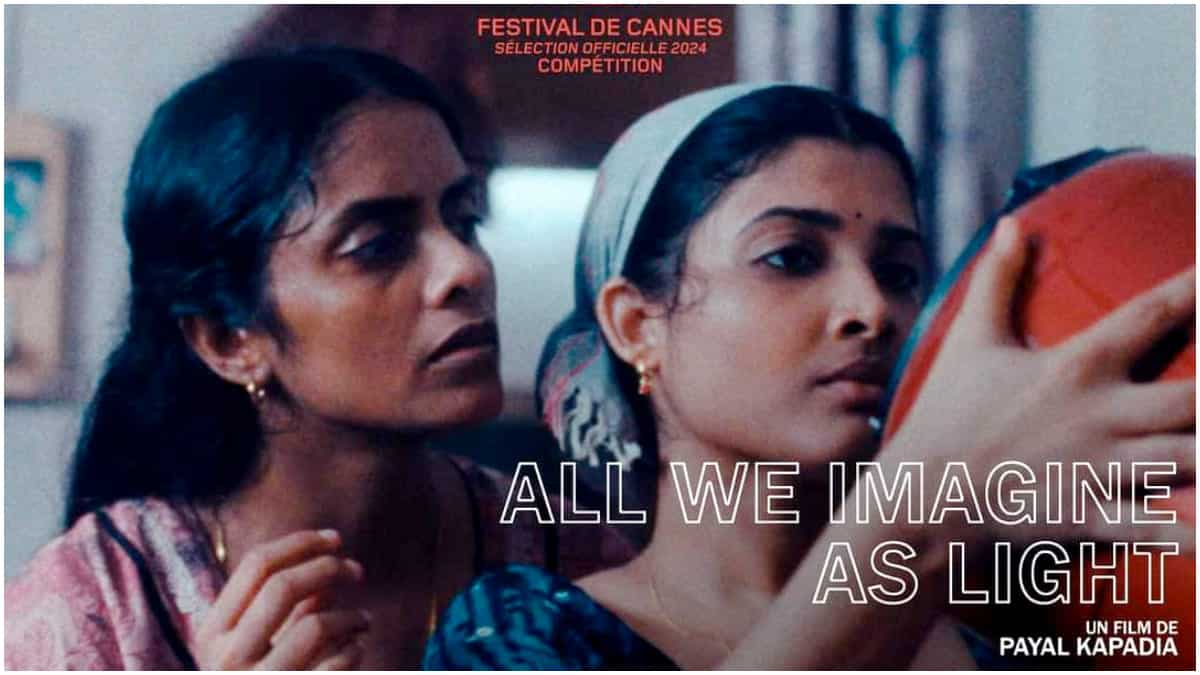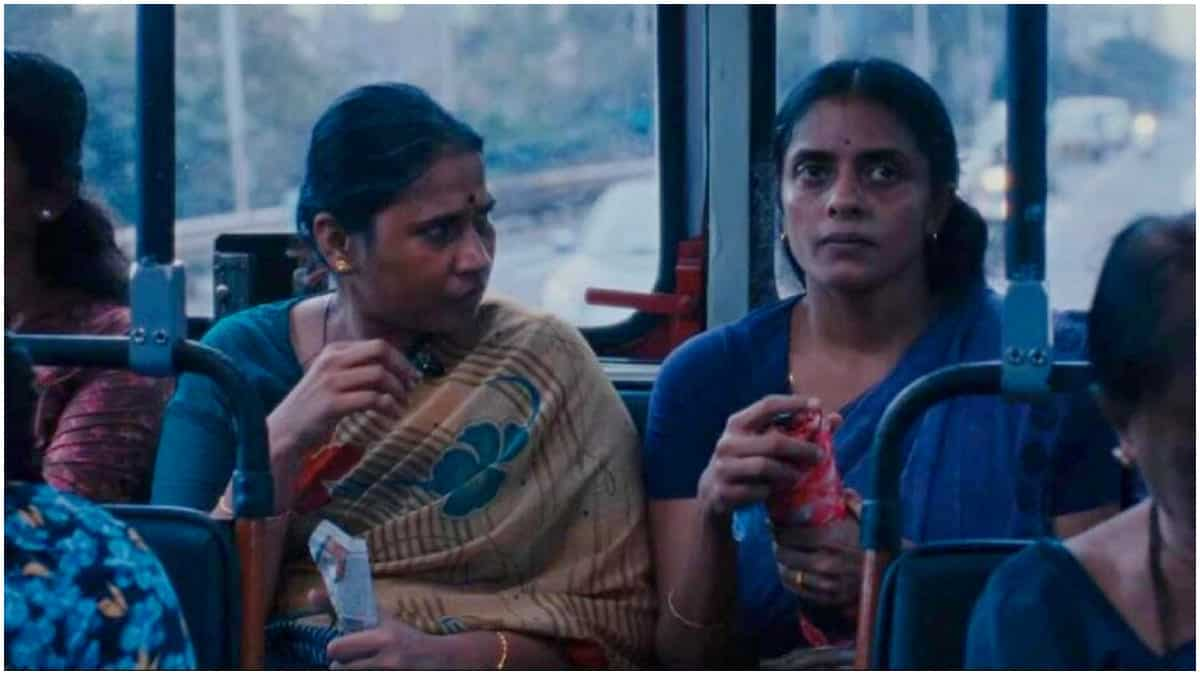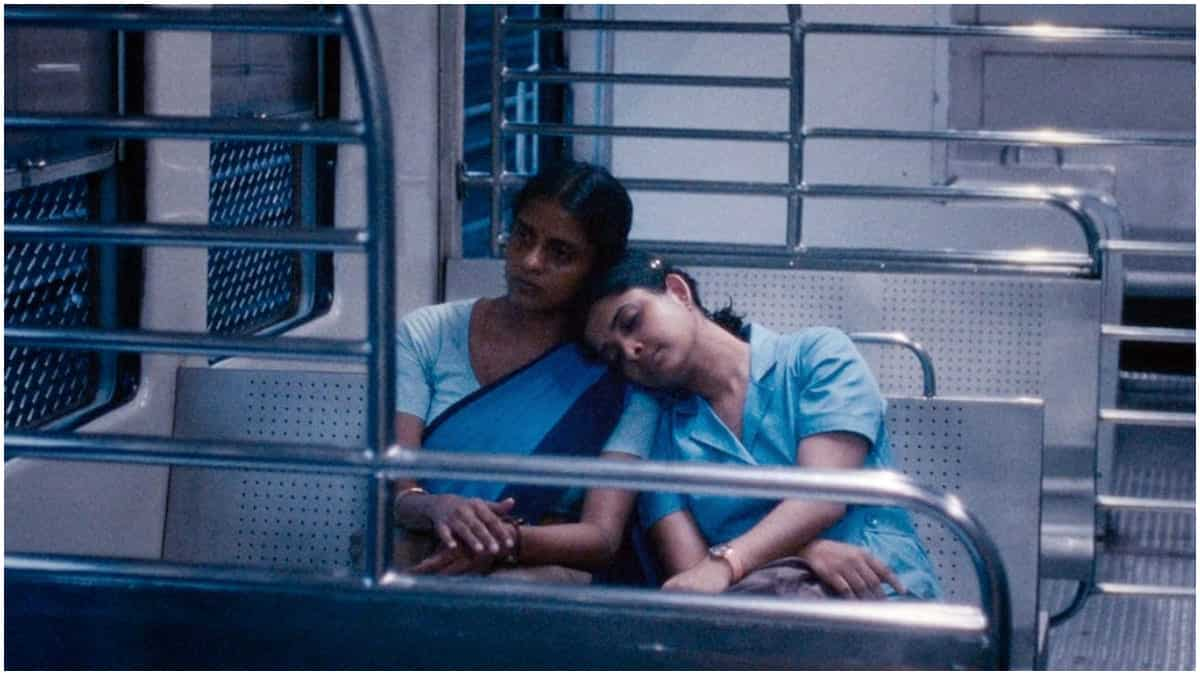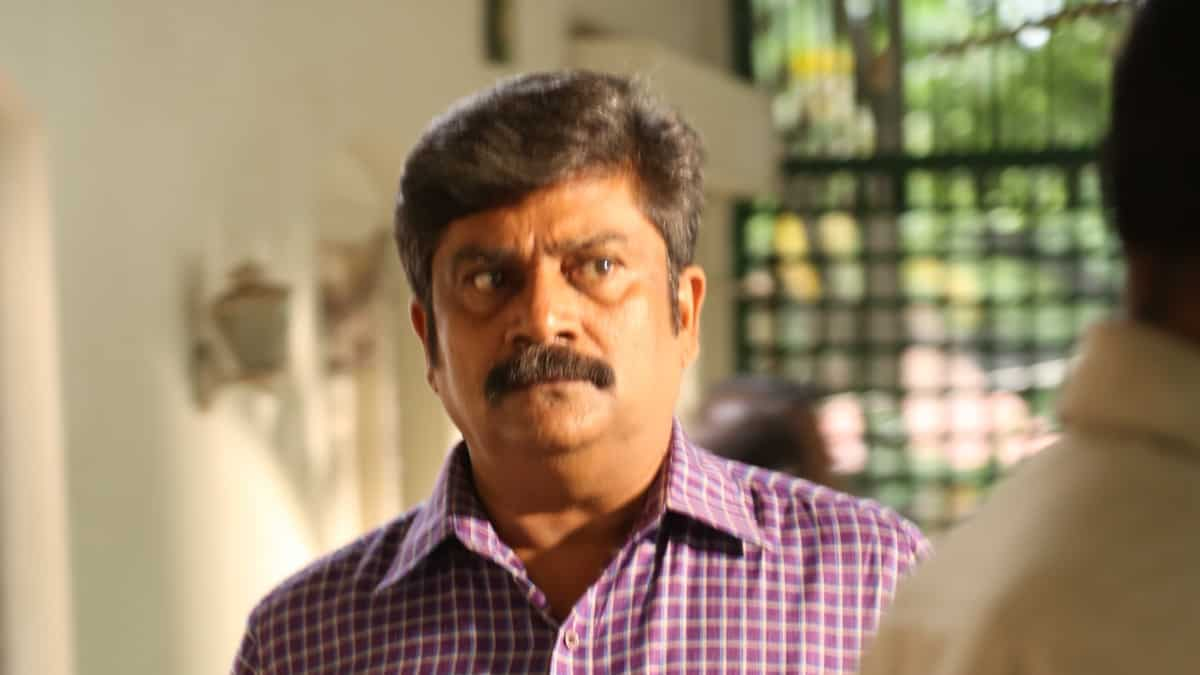
All We Imagine As Light Review: Love and the lack of it in a city called home, or maybe not
4 months ago | 5 Views
All We Imagine As Light Review: Plot - Prabha (Kani Kusruti) is a head nurse in a Mumbai hospital and a woman abandoned by her husband, who is in Germany. Just when she has lost hope, she receives a gift from him that changes everything. Her roommate, Anu (Divya Prabha), is trying to find a sweet spot in the city of dreams to make love to a man with whom her love story is forbidden. Both of them find a gateway when they travel to Parvathy’s (Chhaya Kadam) village, where they all find redemption—or something that looks like it, even if momentary—away from the chaos they are forced to call home.
All We Imagine As Light Review: Analysis
It’s 10:45 PM, and I am traveling in a half-packed Mumbai local with most of them heading back ‘home.’ Someone watches a film, a group plays Ludo, and a man is fast asleep with the privilege of catching the window seat. But amid all of them, one man talks to his mother, who is probably in a city that isn’t Mumbai. He tells her that the place he usually buys food from will be closed by the time he reaches. Call it irony or just an everyday observation, but it gives me such a beautiful edge to write the review (read love letter) of a movie that opens to noise—the noise of its dwellers who are immigrants. One voiceover says something to the effect of, “I am scared to call this city home, even after having lived here for over 20 years.” Another talks about missing home as the visuals take us through a busy flower market right next to Dadar station, where most of my festival weekends were spent shopping.
Calling All We Imagine As Light a mere film is clearly not a good idea because it is the lived experience of a filmmaker who has grown up in a place of privilege but also has the empathy to see beyond the walls of her privileged home and upbringing. It explores the lives of people who had to call this city home, whether they wanted to or not because no other place could fund their lives better. Travel a stretch of 40 kilometers in this city and count the people who tell you how lavish their homes are in their hometowns but are forced to live in a small apartment here. Now look at Parvathy, created by Payal Kapadia, a widowed woman who has lived in a dingy home for over 20 years. She has no right to call it home because she doesn’t have documents to prove it. Cut to an hour later, we see the treasure she holds in her native place, where vibrance fills the screen, fresh waves hit the shore, and the title of the film comes alive.

Payal Kapadia, who writes and directs All We Imagine As Light, wants you to see exactly that. As the noise in the opening fades, we are told to focus on these three strangers working in a busy hospital in Bombay. A quick run-through reveals they are three women standing on different stages of transformation—stages that this city forces immigrants with limited resources and education to go through. Annu is a young trainee nurse who has recently moved to the city. She is in a relationship with a Muslim boy, both wanting to steal sweet moments, some kisses, and maybe more in a jam-packed city, but they fail most of the time. Prabha is a woman deprived of the emotion called luck because her husband feels sending a bright rice cooker from Germany (the only colorful thing in their rather colorless world) is his only responsibility.
She lives that love through Annu by succumbing to her demands, even if it means covering her rent for a couple of months. Then there’s Parvathy, who wants to make this city a home but is being rejected. She doesn’t want love or bonds because she knows they will turn bitter at some point. Combine them, and they are the same person—just in various stages of transition, almost like a jigsaw puzzle. The city tests them and rewards them at the end of every month. But what about redemption? With her Cannes-winning film, Payal Kapadia tries to find redemption for these three women and maybe for herself. Can they find it in Bombay? Is Parvathy correct in wanting to make a home away from a better home?
Kapadia answers all of it and more in the second half, where she shifts the story to a beach town where Parvathy owns a home. To DOP Ranabir Das’ complete credit, the world opens up, the breeze plays, and as an audience, you feel comfort even when you are not there with the three women. The frames in Mumbai are compact; you never see a clear visual of their entire homes because there is no space for light or air to play or flow. So when a beach comes into play, emotions heighten, and the world starts looking clear to all of them. Annu, who had no space to get intimate with her partner in Bombay, now has an entire cave where there is no one around. Just two lovers right next to a wall that reads “Pappu Loves Shalu” and “Azadi” (freedom) written next to it. It’s not just these two who felt free—there were probably many like them who felt it but didn’t feel like writing it on that wall.

All We Imagine As Light is brave because it doesn’t take a dramatic route to tell the story of women living alone in a city. Instead, it shows how they don’t need saviors—they need affection and a home that is more than a dark hole on the margins. Kapadia’s brilliance lies in her framing. She doesn’t rush to call a cut. Long after the dialogues end and reactions are given, the camera keeps rolling, immersing you in this experience. These could be the stories of your house help or the person you crossed on your way home today. The names change; the battles remain constant.
Over-dissecting the performances would kill the joy of watching them unfold onscreen. This is Kani Kusruti’s year, and I am now a fan eager to see her do more (read my Girls Will Be Girls review here). Her command over the screen, even without demanding attention, is remarkable. Divya Prabha brings out naivety so well that you know she will soon sacrifice it to survive in this city. Chhaya Kadam continues her reign, proving her star power. While she remains the woman offering wisdom while cooking, she isn’t Manju Mai from Laapata Ladies (Lost Ladies). Her Parvathy is not giving up—she wants to live with her head held high. Hridhu Haroon gives it all to this part and you know how his character is up for the most judgment, but he makes sure he conveys what he believes.
All We Imagine As Light plays to the notes of The Homeless Wanderer by Emahoy Tsege Mariam Gebru, a score that marinates you, haunts you, and finally comforts you. It brings Bombay alive, reflecting the steep graph of living here. The only loose end is a subplot involving a Malayalam-speaking man drowning in a Maharashtrian coastal town, which feels unclear. Perhaps a second viewing will make it clearer.
All We Imagine As Light Review: Final Verdict
All We Imagine As Light is more than a film—it’s a daily conversation in Mumbai, an ode to a city that holds dreams and aspirations in every corner, with hope at its center. How many of us achieve them is the grind.
I had the privilege of watching All We Imagine As Light at the MAMI Film Festival 2024. The movie hits theaters on November 22, 2024.
HOW DID YOU LIKE THIS ARTICLE? CHOOSE YOUR EMOTICON !
#




















